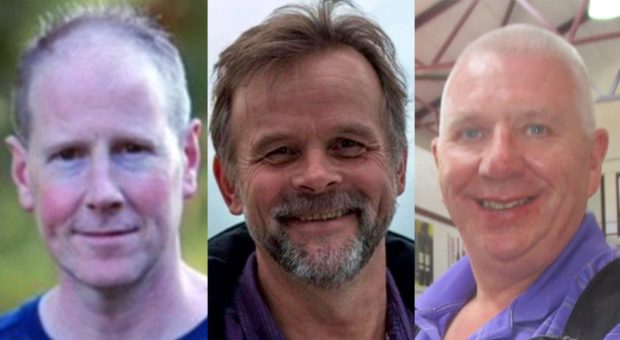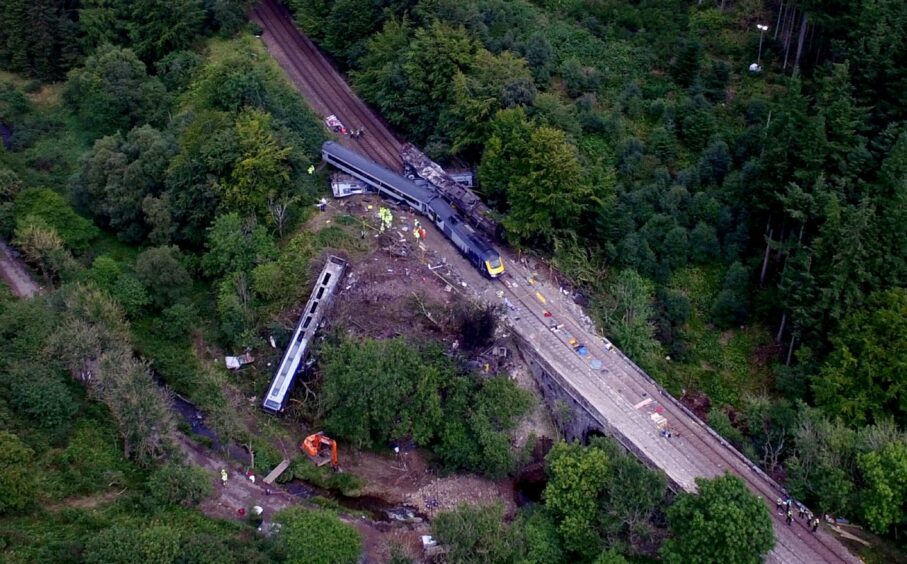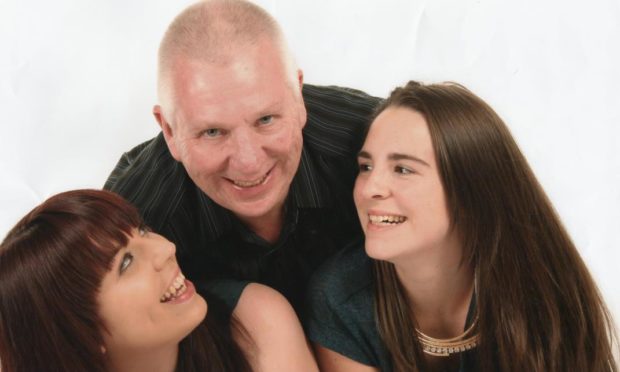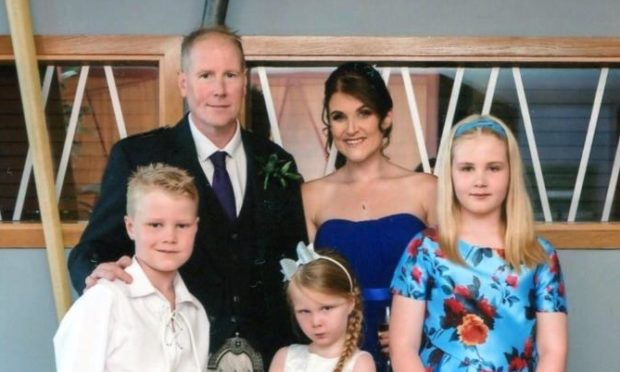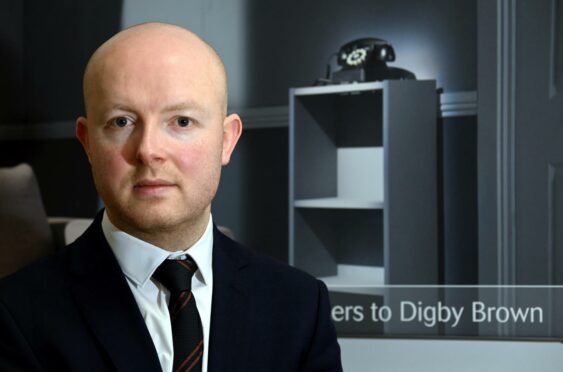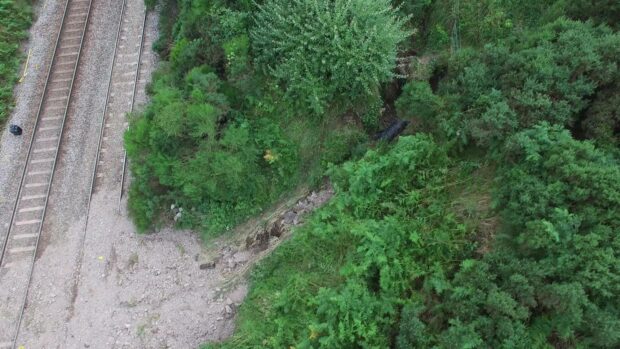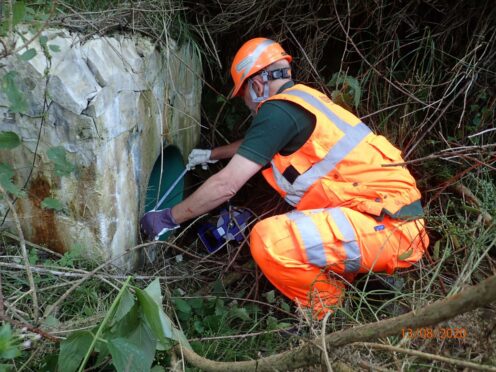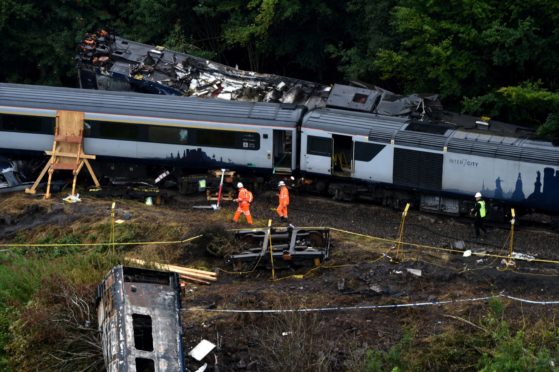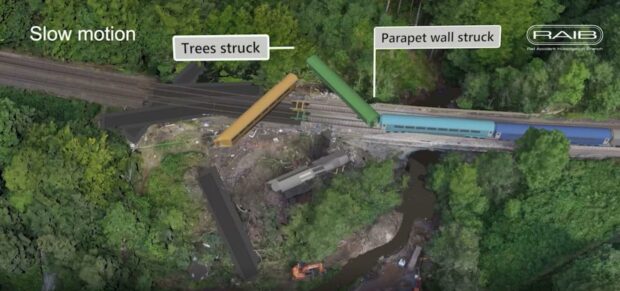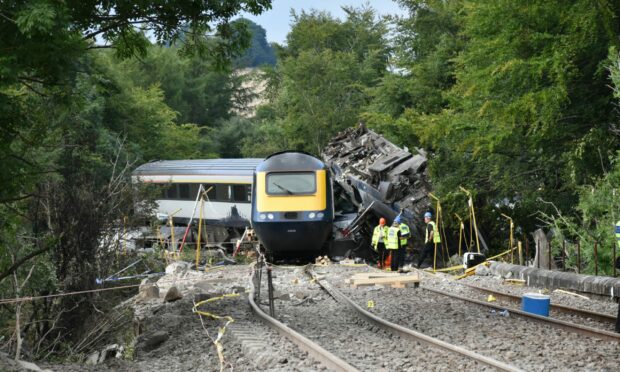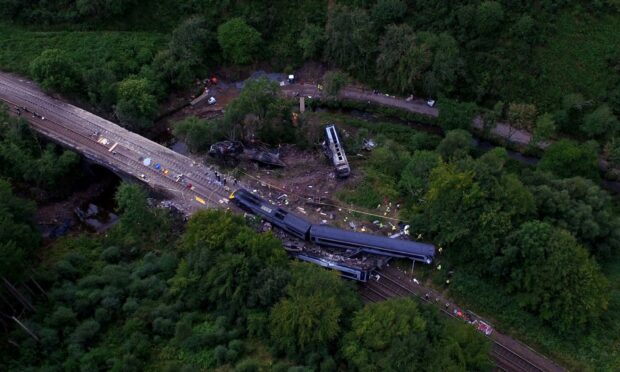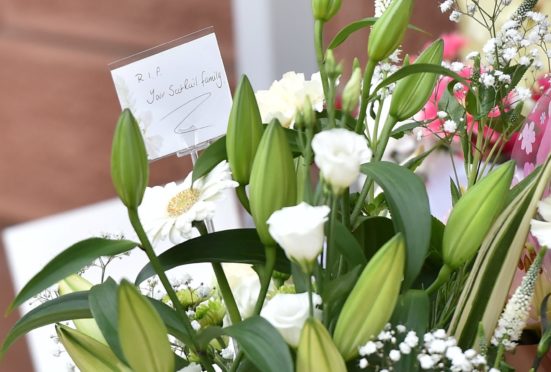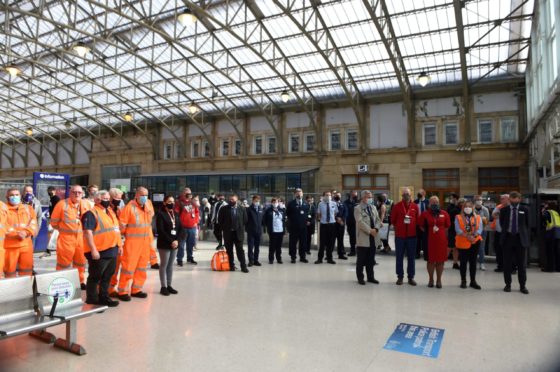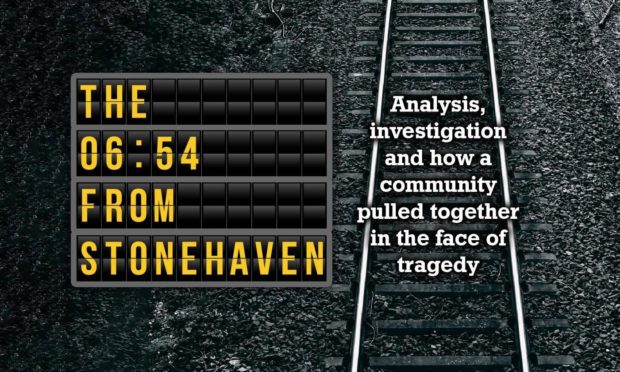Loved ones of those who died in the Stonehaven rail crash have reacted with “disbelief and anger” to the final investigation report, accusing officials of a “catalogue of errors”.
The crash claimed the lives of train driver Brett McCullough, conductor Donald Dinnie and passenger Christopher Stuchbury.
The Rail Accident Investigation Branch (RAIB) gave the families advanced sighting of the report and invited questions and feedback.
So the families were aware of the report’s content before today’s publication.
On the day of the crash, Christopher Stuchbury was travelling from Aberdeen to Fife to do one of his final shifts as a tugboat master at Targe Towing Team.
The 62-year-old had worked there for 24 years and was also a dedicated volunteer at Roxburghe House in Aberdeen, helping patients approaching the end of their life.
A ‘catalogue of errors’
On behalf of the Stuchbury family, Christopher’s son Neil described the tragedy as being down to a “catalogue of errors”.
He said: “The report shows that no one circumstance or event caused the crash in isolation, as should be the case in any system charged with our safety.
“Instead several factors – weather conditions, insufficient drainage, lines of sight, bridge location, and more – led to the fatal outcome.
“Just as no single factor caused the crash, no single mistake can be pointed to either.
“A catalogue of errors and oversights are accountable.
“Lack of communication between both individuals and organisations is evident, as is a continued failure to comply with internal protocols and training – protocols and training designed to limit the probability of events such as this.”
‘The tools were available’
Neil added: “Though conditions on August 12 2020 were unusual they were not at all unforeseen.
“The tools, know-how, and processes were available to prevent this but were not properly implemented.
“Tellingly, several of the RAIB recommendations point not to new lessons arising from this crash but to the repetition of old ones.”
Also among the victims of the crash was conductor Donald Dinnie.
The 58-year-old dad of two was a keen photographer and was popular among passengers and his rail colleagues.
In an exclusive interview three months after the tragedy, Donald’s daughter Christina described her father as a true gentlemen who had a great sense of humour.
‘One of his prime considerations was safety’
Representing the Dinnie family is Julie Clark-Spence, a partner at Balfour and Manson in Aberdeen.
She said: “I know from speaking with the family that one of Donald’s prime considerations was the safety of his passengers.
“He took this responsibility very seriously and it’s reassuring that the findings and recommendations of this RAIB report should help make the railways safer for generations to come.
“The family welcome the publication of the RAIB report, but we must not forget that they are grieving the loss of their loved one”.
The crash also claimed the lives of dad-of-three Brett McCullough, 45, whose wife Stephanie and sister Salina have previously given exclusive interviews to the Press and Journal.
‘Disbelief and anger’
Stephanie spoke with great strength and dignity about Brett’s close bond with her and his three children, Annabel, Ben and Daisy, while Salina told of us her relentless campaigning for justice for her brother.
Neither of them felt able to talk this week.
They are represented by Digby Brown Solicitors, along with some of the six passengers who survived the crash.
None of the survivors have been willing to speak publicly since the crash as some work for the organisations involved in the investigation and others have PTSD.
Digby Brown partner Neil Davidson told us: “The overall reaction from our clients to this report was disbelief and anger.
‘Implement recommendations as soon as possible’
“While they now know what happened, they are angry that numerous opportunities that presented themselves to those concerned weren’t acted upon.
“It was those inactions that led to the incident.
“Our clients will be looking for those RAIB recommendations to be implemented as soon as possible.
“It is up to others to implement them and our clients’ demand would be that those recommendations are implemented as soon as possible so nobody else goes through what they have.”
‘Hard to comprehend’
The Stuchbury family is being represented by Lisa Gregory, solicitor at Grant Smith Law.
She said: “We know the RAIB cannot make findings of fault or blame but its report into the Carmont derailment seems to be highly critical of both Abellio Scotrail and Network Rail.
“They were responsible in law for the operation of the service, the rolling stock, track and signalling.
“It is hard to comprehend not only their failures to respond to the developing situation on the morning of August 12 2020, but also their multiple historical failures of management and assurance.
“At its most basic level, Mr Stuchbury bought a ticket to travel on the train that morning to go to work.
“He and his family were entitled to expect that he would be carried safely to his destination or to a safe alternative.”
Professionalism and transparency
Neil Stuchbury praised investigation officials for the way they have handled the probe.
He said: “This report’s publication marks the culmination of the RAIB’s investigation into the crash that killed my father.
“But is only one of several opportunities afforded to us as a family to come to terms with what happened.
“Meetings, consultations and offers of visiting the site and stored wreckage – accepted or not – all helped to understand a complex series of circumstances and decisions that led to the crash.
“The professionalism and transparency of the RAIB have been reliable constants in a tumultuous 18 months.”
‘Totally devastating’
Those thoughts were echoed by the Dinnie family.
The Dinnie family said in a statement: “We are very grateful for the way RAIB has painstakingly handled this investigation and our thanks go to them for their diligence and consideration in reaching their conclusions.
“For us, while losing a loved one in these dreadful circumstances has been totally devastating, we also reflect that this accident happened at a time when the early stages of the pandemic saw fewer people travelling.
“This, in our view, has made the RAIB investigation more personable, and it has been handled with extreme patience and sensitivity, and we thank them for that.”
